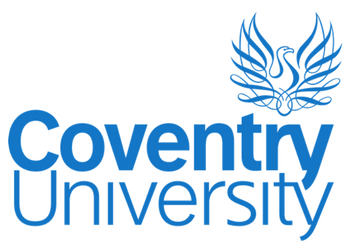

Coventry University
speciality: Communication
What is a Communications degree?
Communications is a universal degree, which explores the traditional forms of communication such as verbal, physical, visual and written communication but also extends beyond that to cover mass communication and social media. There are different types of communications degrees depending on the degree level.
Overall, Communications focuses on teaching effective communication through social media, web, print, mass media and verbal communication. However, there are two types of Communications degrees that exist. For instance, a Bachelor of Arts in Communications in the US is focused on preparing students for careers that are connected to writing, marketing, promotions, journalism and public relations. In contrast, Bachelor of Science in Communications is dedicated to the technology used in the science behind modern communication and prepares students for careers in production or sound engineering.
A Communications degree teaches students about how media and communication influences cultures, societies and people’s identities. It involves a significant amount of critical writing and research and covers different disciplines such as journalism, public relations, entertainment production, marketing, event planning and so many more disciplines, which are somehow connected to exchanging information and conveying messages. There are also different specialization options associated with this degree, including political communication, mass media, journalism, health communication, etc.
It is worth noting that a Communications degree has many intersection points with psychology, sociology, linguistics and in some cases politics.
Benefits of a Communications degree
The main benefit of a Communications degree is its universal nature. It applies to almost any subject or professional setting. For example, some of the top careers in the field of Communications include announcers, art directors, editors, broadcast and sound engineering technicians, reporters, correspondents, broadcast analysts, technical writers, writers and authors, interpreters, translators, etc. Therefore, it keeps students’ career options open and doesn’t require them to have a predetermined career path that they want to follow.
Communications degrees prepare students to make an impact from the start of their careers unlike other degrees, which require further training. This is possible thanks to the multitude of professionally accredited degrees in Communications, which develop students’ abilities based on the established standards in the field. Moreover, there are many Communications courses, which offer work placement opportunities that enable students to gain the required professional skills before they have even started their career.
Another benefit associated with Communications degrees is the fact that they develop students’ written and verbal communication skills significantly.
A major advantage of Communications over other degrees is that in most cases there are no prerequisites required to study Communications.
Communications degree structure
The duration of a Communications degree varies depending on the country and degree level. For example, Higher Education Institutions in the UK offer 3-year Bachelor’s courses. In some cases, the course may extend to four years if students are given the opportunity to spend a year abroad or in industry between the second and third year through a sandwich course. Bachelor’s degrees in Communications in the US usually take around four years to complete.
Over the duration of a Bachelor’s Communications degree, students are expected to learn and be able to apply the established communications theories by developing the technical skills required to work in a professional setting. In the first year of their studies, students learn predominantly how media and communication influences cultures, societies and people’s identities. Optional modules may introduce them to professional communication, journalism, documentary, film-making, marketing, etc. In addition to the introductory topics, this degree allows students to learn about more complex areas of communications such as interpersonal relations, brand management and linguistics at a later stage. For instance, the second and third years enable students to get a deeper understanding of theoretical concepts related to media and culture and develop practical skills in research and communications. Additionally, students may have the opportunity to take optional modules and pursue their interests in different areas related to Communications such as gender, race, youth, culture, digital media, political communication, public relations, etc.
The most common duration of a Master’s degree in Communications is between 1 and 2 years depending on the mode of study (full-time or part-time) and country.
PhD and MPhil degrees in Communications require students to dedicate anywhere between 3 and 6 years to their studies depending on the mode and country of study.
36 Student Reviews
Filter reviews-
Communications and ...7 months ago
 StudentIDFostering Critical Thinking Excellence
StudentIDFostering Critical Thinking ExcellenceCoventry University’s MA Communication, Culture, and Media program stands out for its strong emphasis on critical thinking throughout the curriculum. This focus has been instrumental in broadening my perspective and allowing me to engage deeply with the subject matter.
The program offers a diverse range of modules, allowing students to tailor their studies to their interests. Practical components, such as research projects and case studies, provide real-world applications for critical thinking skills.
Coventry University’s supportive learning environment and industry connections enhance the educational experience. This program equips students with valuable skills for success in the communication and media industry. If you seek a program that fosters critical thinking and prepares you for a rewarding career, Coventry University’s MA Communication, Culture, and Media is an excellent choice.
View moreProgramme: Communications and Media StudiesDegree: Master'sGraduation: 2024Delivery Type: On CampusCampus: Coventry -
digital marketing ...8 months ago
 RichardGBMy opinion
RichardGBMy opinionI would like to recommend it as it not only helped my but also widened my ability of thinking and the best place would library and silent rooms for students and the staff is friendly, I won’t say it feels like home but I can say its a comfortable place to be.
View moreProgramme: digital marketing and analyticsDegree: Master'sGraduation: 2023Delivery Type: On CampusCampus: Coventry -
Journalism29 Nov, 2022
 StudentIECoventry Uni
StudentIECoventry UniThe reason for 3 stars is that while there are wonderful facilities such as the new science building, there were many things that needed to be improved during my three years at the university. Teachers are good and bad. Some instructors provide the content you need and are less helpful, while others are more dedicated and passionate. I received coursework that I felt was unfairly graded on average, especially when there was little feedback to justify my grades, so grade evaluation is entirely dependent on the grader. Really looked at the problem.
View moreProgramme: JournalismDegree: Bachelor'sGraduation: 2021Delivery Type: BlendedCampus: Coventry -
Communication and ...24 Nov, 2022
 StudentReview
StudentReviewCoventry University has an outstanding record of academic excellence and the institution is known for giving good tutoring to students. They also have standard facilities to crown it all, it is the best for anyone.
View moreProgramme: Communication and MediaDegree: Bachelor'sGraduation: 2020Delivery Type: On CampusCampus: Coventry -
Digital Media23 Nov, 2022
 StudentGBVast facilities
StudentGBVast facilitiesCoventry university is the best school to be educated, vast facilities to assist the students. Wide-ranging programs, beautiful infastructure and a charming environment, affordable accomodation and fantastic teachers to guide the students.
View moreProgramme: Digital MediaDegree: Bachelor'sGraduation: 2019Delivery Type: On CampusCampus: Coventry -
Digital Media23 Nov, 2022
 StudentGBFantastic peers
StudentGBFantastic peersThe university has a wide array of interesting people across the campus. You’ll never have a dull moment here, always an ecstatic lecturer ready to make your day and the lessons more interactive. Furthermore you’ll never see a place more vibrant than Coventry University with numerous events and clubs you’ll never feel alone.
View moreProgramme: Digital MediaDegree: Bachelor'sGraduation: 2024Delivery Type: BlendedCampus: Coventry -
Digital Media21 Nov, 2022
 StudentFair disciplinary policies
StudentFair disciplinary policiesThe discipline at Coventry is fair to all student pertaining on the weight of your offence, the students appreciate the disciplinary measures, because its mostly aimed at correction of the wrongs done by the student
View moreProgramme: Digital MediaDegree: Bachelor'sGraduation: 2024Delivery Type: On CampusCampus: Coventry -
Journalism17 Nov, 2022
 StudentGood disciplinary policies
StudentGood disciplinary policiesThe disciplinary policies at Coventry University is at is fairest, all students appreciate the disciplinary fairness,no student feels like they are treated badly, the policies are to correct the defaulters, this makes the university disciplined
View moreProgramme: JournalismDegree: Bachelor'sGraduation: 2023Delivery Type: On CampusCampus: Coventry -
Journalism15 Nov, 2022
 StudentReview
StudentReviewCoventry University is a very renowned institution that has various courses to choose from. The facilities are world class and very standard structure with various amenities set in place for the students in other to encourage learning.
View moreProgramme: JournalismDegree: Bachelor'sGraduation: 2019Delivery Type: On CampusCampus: Coventry -
Journalism14 Nov, 2022
 StudentReview
StudentReviewWhat I Know Coventry University is a 21st-century university with top-notch amenities and incredible and great students whose goal is to excel in their field of study in other to attain academic excellence.
View moreProgramme: JournalismDegree: Bachelor'sGraduation: 2024Delivery Type: On CampusCampus: Coventry

